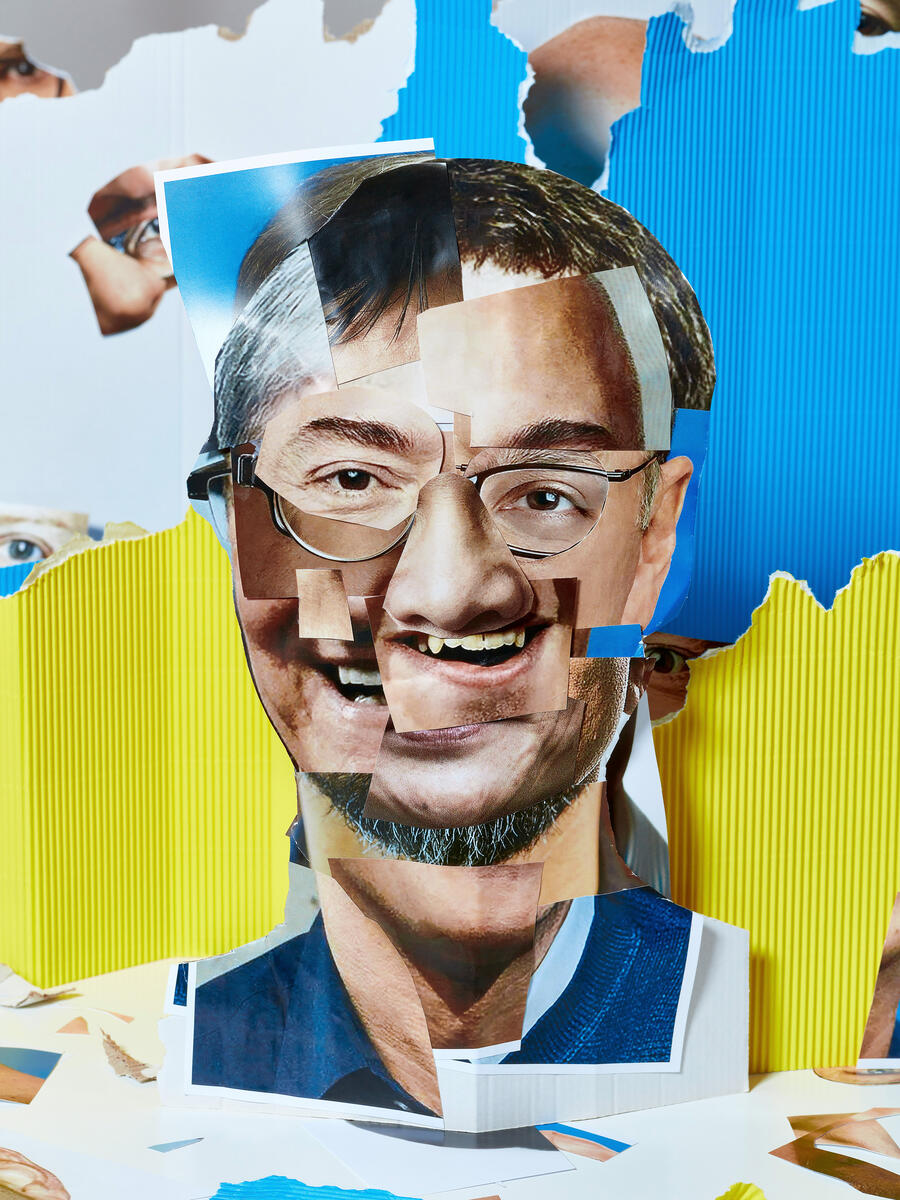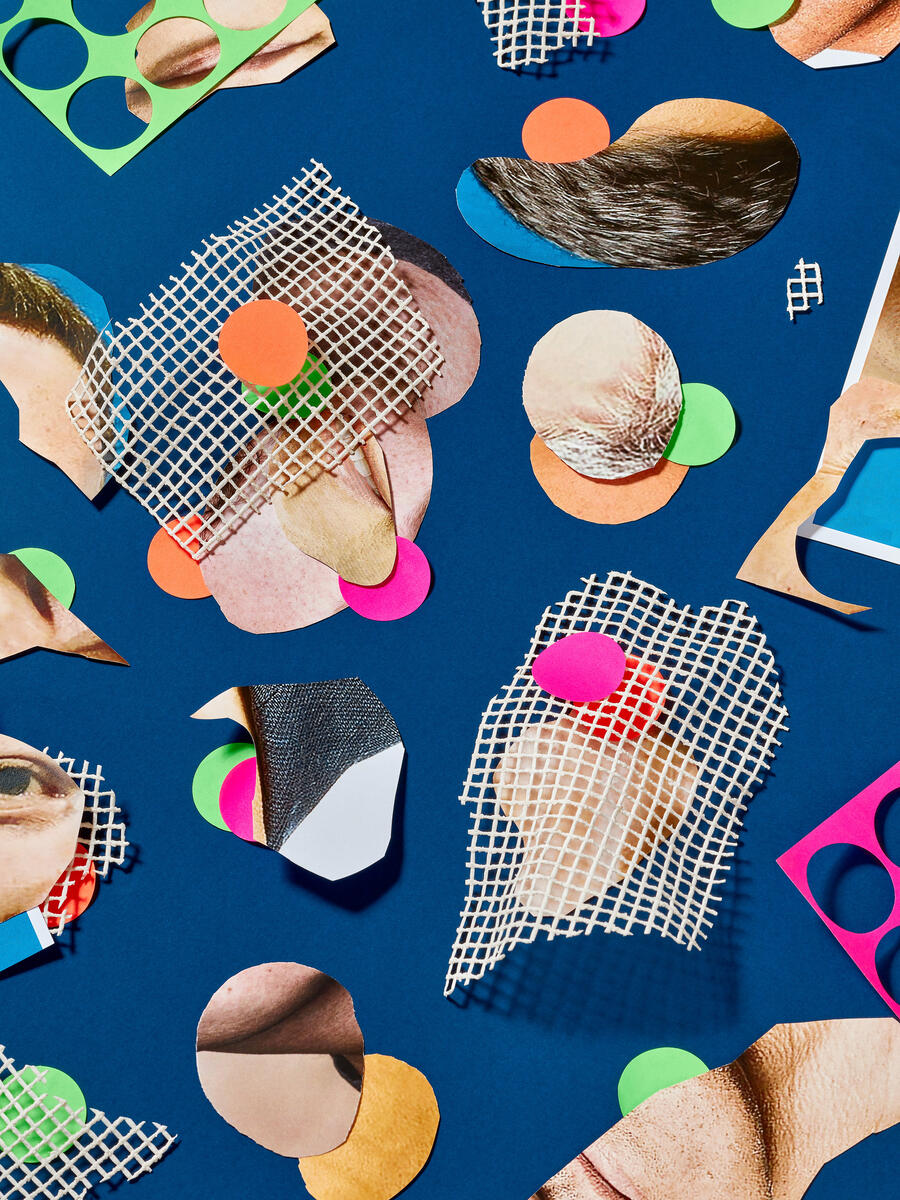- 1/1
© Dávid Biró, Do You Accept Cookies? #05, 2020.
Det er hevet over tvil at tiden er inne for at vi skal behandle personopplysningene våre mye mer forsiktig. Selv om vi kan bestemme oss for å slette profilen vår fra sosiale medier, og ikke akseptere informasjonskapsler på nettsteder, kan vi ikke bare logge ut fra ansiktsgjenkjenningssystemet til offentlige rom.
- 1/1
© Dávid Biró, Do You Accept Cookies? #07, 2020.
Dávid Biró har skapt ansiktsimiterende installasjoner for å eksperimentere med hva det menneskelige øyet gjenkjenner som et ansikt, og det som ser ut til å være et ansikt i henhold til algoritmen til mobilkameraer. Biró prøver å oppdage blindsonene til teknologien for ansiktsgjenkjenning og å unnslippe systemet ved hjelp av forskjellige hacks. I mellomtiden tar han det etiske spørsmålet om observasjon og det å være den som blir observert inn i diskusjonen, som utvilsomt er et av vår tids viktigste dilemmaer.
- 1/1
© Dávid Biró, Do You Accept Cookies? #02, 2020.
Her kan du lese Dávid Birós prosjektbeskrivelse
There are only a few things, which we can consider so exclusively our own as our faces. One of the most basic elements of our identity is our most intimate, yet most public part. We barely ever cover this surface of our body, not even in public space, and in some countries, it is considered to be a crime to cover one’s face in particular spaces. Therefore it seems like it is our duty, to always be identifiable when we enter somewhere. But how far this duty of identification extends, and where does the monitoring of people change into illegal and authoritarian surveillance?
It is beyond doubt, that the time has come for us to start dealing with our personal data much more carefully. Although we can decide to delete our profile from social media platforms, and not to accept cookies on websites, we can not just simply log out from the face recognition system of public spaces.
Dávid Biró created face-imitating installations, in order to experiment on what the human eye recognises as a face, and what appears to be a face according to the algorithm of mobile cameras as well. Biró attempts to detect the blind spots of the technology of face recognition and to elude the system using various hacks. Meanwhile, he takes the ethical issue of observation and being the one who is observed into the discussion, which is unquestionably one of the most important dilemmas of our time.


